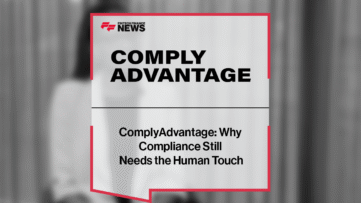Breaking News

Brexit Britain’s Fintech Sector Could be Boosted by FCA’s Regulatory Engagement Beyond London
The City of London has long been a magnet for investment and finance talent, while the UK’s wider financial sector continues to be the biggest and most respected in the world.
In recent years, as the industry succumbs to new innovations, the capital has become a hive of new financial technology companies as start-up accelerators and new businesses enter the market to challenge the traditional industry.
But with Brexit negotiations now underway, and the UK’s future as a financial centre more uncertain, the strength of the emerging fintech sector is in doubt, particularly as other EU countries look to take advantage of the current confusion by trying to entice businesses to relocate outside of the United Kingdom.
However, the government and financial regulators appear to have identified these threats to one of the pillars of the UK economy, and are making strides to boost the industry in London and beyond.
Expanding regulation assistance beyond the capital
The Financial Conduct Authority (FCA) – Britain’s financial watchdog – recently announced that it is to expand its regulatory support services to make them easier to access for emerging financial technology hubs based outside of London.
Up to now it is not hard to see why the majority of successful companies have come from London, largely due to their proximity to tech funding and major financial institutions, as well as government and regulatory bodies.
Looking at the rest of the world these are, for the most part, the contributing factors that have enabled start-ups in the sector to find success, and each of these are all prominent in London.
However, years of consistent devolution of government powers and responsibilities, the emergence of non-London tech hubs and the willingness of financial institutions to have more presence in regions and cities outside of London, means the rest of the UK is now primed for a fintech boom similar to that in the capital.
Specifically, the regulator is looking to areas with both a strong financial centre and technology presence.
Emerging hubs in the Edinburgh to Glasgow corridor and Leeds to Manchester area have been identified as areas for potential growth by Christopher Woolard, executive director of strategy and competition at the FCA.
Examining the fintech market in the regions, and considering the factors for success already identified, it is clear why the UK’s fintech sector remains bright after Brexit, with these regions creating the conditions for smaller and highly innovative start-ups to come into the market.
In Manchester for instance, Barclays’ “Rise” hub and “The Vault”, a 20,000 sq ft co-work space for fintech firms is helping promote collaboration and growth for new businesses while in Leeds, the “FiNexus Lab”, a collaboration between local government, industry, and central government, is laying solid foundations for fintech firms to flourish in the city.
As well as making access to regulatory assistance easier, the FCA has been assisting up and coming fintech businesses in other ways, particularly through its “sandbox” scheme, which allows firms to experiment with services, products and business models, without the usual regulatory consequences.
Demonstrating the growth of the UK’s fintech sector, nearly two thirds of the scheme’s first participants were based in London but, thanks to increased regional interest, nearly half of applicants for the latest intake came from across the rest of the country.
Venture capitalists and other sources of funding are also realising the potential for fintech outside London and businesses are experiencing increased opportunities for funding, led by Durham based Atom Bank, which recently secured £83m of funding from investors including Spanish bank BBVA, fund manager Neil Woodford and Toscafund Asset Management.
A long term idea
While the FCA has only recently shifted its focus to regulatory assistance for businesses outside London, it is not a wholly new concept and financial and technology bosses, as well as a number of politicians, have been calling for similar moves for several years – many of them long before the prospect of Brexit became a reality.
Eric van der Kleij, head of Canary Wharf based start-up accelerator Level39, has been one of the leading fintech figures suggesting that a business’ location isn’t a factor in whether it will be a success, pointing particularly to Manchester as a place where fintech companies were performing strongly.
However, up until now, one of the major barriers to success that the FCA is now seeking to remove, is that much of the fintech regulatory framework originates from London and businesses based elsewhere have historically struggled to access the same help as their capital based cohorts.
By bringing these services directly to businesses, the FCA says it wants to make it “as easy as possible” for firms to engage with the regulator and get the help and advice they need to get a foothold in the market.
Increasing fintech competition in Brexit Britain
Financial technology is one of the world’s fastest growing sectors according to the European Union, with figures showing that investment into the industry grew 75% by the end of 2015 compared to the year before, to $22.3bn.
Nearly 2,500 fintech start-ups have received more than $50bn in investment from private equity firms, venture capitalists and large corporates since the start of the decade.
In the UK alone, the fintech sector is now worth nearly £7bn, with a workforce close to 60,000 people.
Looking at the UK’s global market position, only the United States ranks better than the UK in KPMG’s top 100 fintech list.
However, it is interesting to note that Atom Bank, which is not based in London, is the UK’s highest based company and the only business to breach the list’s top 10 that is from the United Kingdom.
The fact that the UK’s leading company is not based in London, could be significant if the government is to convince other companies to start up, particularly those who may not want to incur the costs of setting up in London.
It is also particularly important as some EU countries are looking to challenge London’s dominance in fintech and attract firms away from the traditional European hub.
In Luxembourg, a new public-private partnership, the “House of Fintech” has been established to attract businesses to set up or relocate, while lobbyists from France have been making efforts to entice fintech businesses currently in the UK to move to Paris.
Even outside the EU, other nations are taking steps to replicate the innovations being pioneered in the UK, with The Monetary Authority of Singapore looking to establish its own version of the FCA’s sandbox scheme to improve the prospect of the fintech market.
The UK’s future position as a financial heavyweight may not be fully known for several years, but high growth fintech businesses need to be given the chance to succeed – no matter where they are located – and the FCA’s new commitment should be one of a line of new innovations to make that happen.
For more information, please visit: http://neopay.co.uk/
Written by Craig James, CEO of Neopay
- Addresscloud Appoints Clair Bush as Fractional CMO to Support Scalable Delivery of Geospatial Risk Intelligence Read more
- Banking Transformation Summit | 19-20th May | Tobacco Dock, London Read more
- ComplyAdvantage: Why Compliance Still Needs the Human Touch Read more
- ING: Turning AI Pilots Into Production Read more
- Volante Technologies: Why Banks Need Partners, Not Vendors Read more












